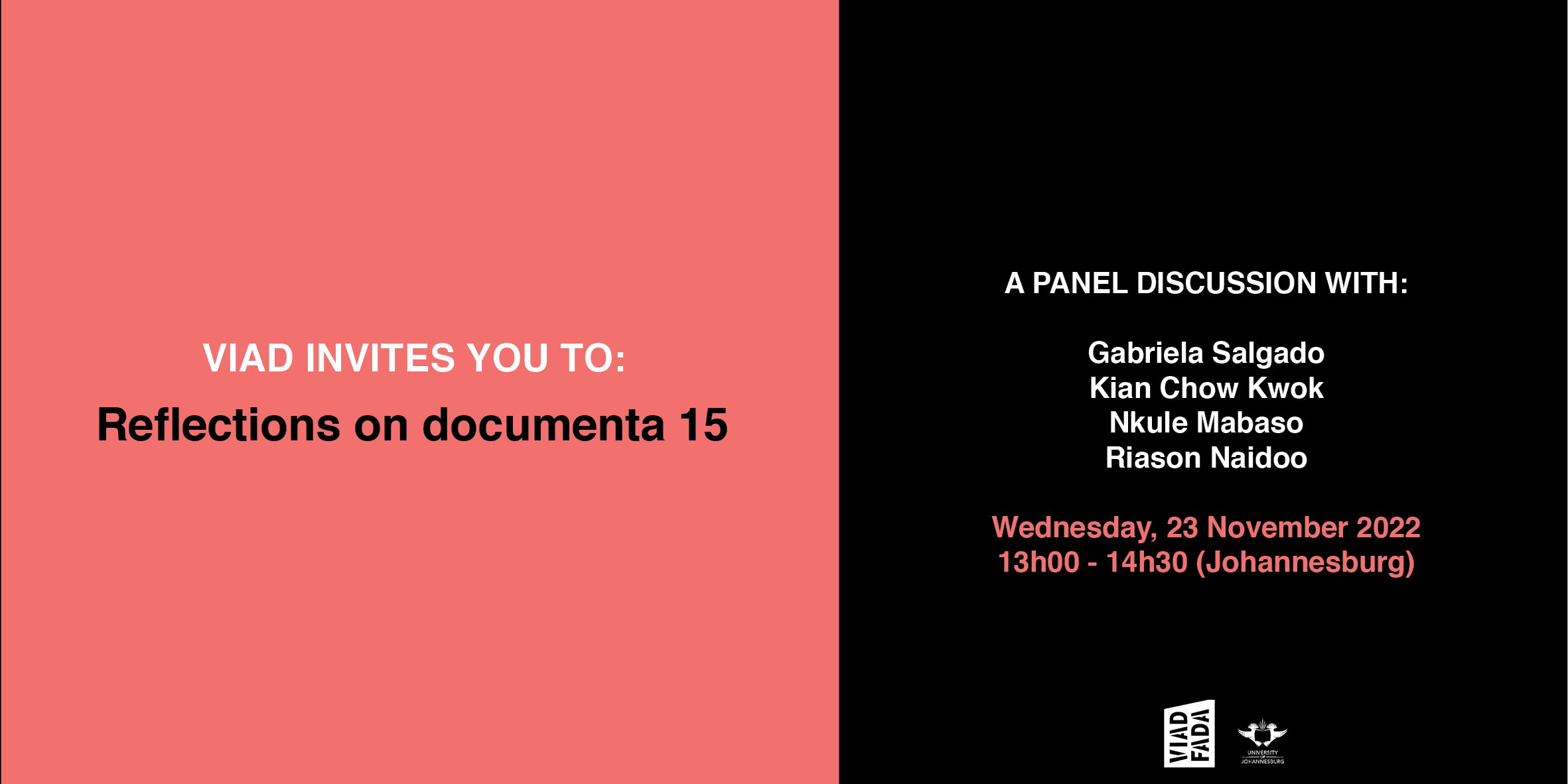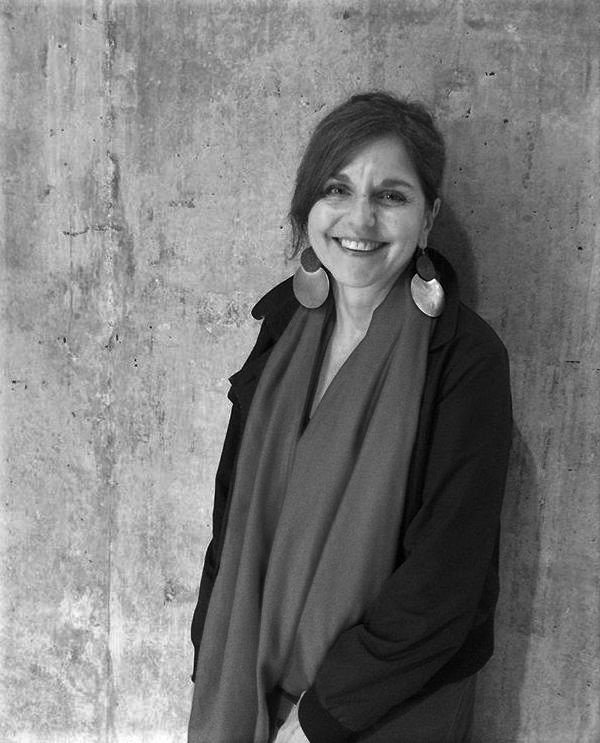Reflections on documenta 15
A panel discussion featuring Gabriela Salgado, Kian Chow Kwok, Nkule Mabaso and Riason Naidoo.
documenta 15 or lumbung 1 held in Germany this year turned the (artworld) cart upside down. Following Nigerian curator Okwui Enwezor’s documenta 11 in 2002, Indonesian art collective ruangrupa (which also means a space for art) were the first Asian artistic director and first collective of the prestigious event that happens only once every five years.
Formed in 2000 in Jakarta by a group of seven artists, ruangrupa provides a platform in Indonesia for exhibitions, research, publishing, workshops and events, often working across the disciplines of art, social science, politics and technology. If audiences were looking for the classic Venice style biennale in Kassel this year they were in for a big surprise, which left many asking “Where is the art?”
‘lumbung’ refers to communal rice-barn, where the surplus harvest is stored for the benefit of the community. ruangrupa took the opportunity to share the stage with fourteen other collectives from the South, from Indonesia to Haiti, from Mali to India. These collectives in turn invited ‘friends’ - a term ruangrupa prefers - to participate. This communal sharing: of solidarity, of equity, of art activism, may be familiar to many in the Global South but saw a clash with market oriented values prevalent in the Western-centred art world. The ruangrupa led documenta 15 challenged the conventional definition of the artwork as well as market driven systems and practices. The absence of artists linked to prestigious galleries was cause for concern by invested parties. Occupying centre stage rather were cultural workers, activists, community collectives, et al.
The panel discussion took place on 23 November 2022 via zoom.
A mind map drawing by ruangrupa describing their concept of ‘lumbung’ that greeted visitors to documenta 15 at the entrance to the Fridericianum venue in Kassel, Germany. Photo: Riason Naidoo.
Gabriela Salgado
Gabriela Salgado is an Argentine-born curator based in London and working internationally. Gabriela gained a Curating Contemporary Art Master’s degree from the Royal College of Art, and since 1997 she has curated a large number of exhibitions and has lectured in over twenty countries. She specialized in Latin American art as curator of the Latin American Art Collection at Essex University, UECLAA (1999-2005) and was curator of Public Programmes at Tate Modern (2006-2011). She curated La Otra Bienal in Bogotá, Colombia (2013) and the 2nd Biennale of Thessaloniki, Greece (2009) and acted as jury member for the Prince Claus Awards and Videobrasil Festival. She created ‘Transatlantic Connections’ a programme of exchanges for African and Latin American artists (2011-2016). Between 2017 and 2020 she worked as Artistic Director of Te Tuhi Contemporary Art in Auckland, Aotearoa New Zealand, and in 2022 became director of The Showroom in London.
Kian Chow Kwok
Kian Chow Kwok (he/him) was senior curator (1992-1994) of the National Museum of Singapore, director (1994-2009) of the Singapore Art Museum, and director (2009-2011) and senior advisor (2011-2015) of the National Gallery Singapore. Kian Chow was associate professor and headed the arts and culture management programme (2015-2019) and Wee Kim Wee Centre (2017-2018) at the Singapore Management University. An independent curator and writer, Kian Chow is a steering committee member of the Global (De)Centre: Diversity, Mobility, Culture.
Nkule Mabaso
PhD Researcher at HdK-Valand, University of Gothenburg and Director of Natal Collective. Established in 2012, Natal Collective is an independent production company based in South Africa, and active internationally in the research and presentation of creative and cultural Africana contemporary art and politics. Recent projects include editing Climate: Our right to breathe with Hiuwai Chu, Meagan Down, Pablo Martínez, and Corina Oprea. Climate: Our Right to Breathe is a book in response to vast, mutually exacerbating planetary conditions: the accelerated collapse of the biosphere under climate change and the increasingly crushing dynamics of toxic politics.
Riason Naidoo
Born in Durban, Naidoo has curated numerous exhibitions since 2004 including: "neuf-3" (2021) on contemporary African art in the public space in Saint-Denis, Paris; the public art project "Any Given Sunday" (2016) in Cape Town; retrospective exhibitions on artist Peter Clarke’s work in Paris, London and Dakar (2012-2013); "1910-2010: From Pierneef to Gugulective", held at the South African National Gallery (2010); "The Indian in Drum magazine in the 1950s" (2006) photo exhibition—followed by the book by the same name (Cape Town: Bell-Roberts Publishing, 2008) and the documentary "Legends of the Casbah" (2016); exhibitions on the work of veteran South African photographer Ranjith Kally shown in Johannesburg, Durban, Cape Town, Bamako, Barcelona, Vienna and Reunion Island (2004-2011). In 2002 he worked with French activist artist Ernest Pignon-Ernest on the public art project "Soweto-Warwick" that took place in Durban and Kliptown. Naidoo directed the South African National Gallery (2009-2015) as well as the “South Africa – Mali Project: Timbuktu Manuscripts” (2003-2009). In 2012 he was co-curator of the 10th edition of the Dak’art biennale in Senegal.






